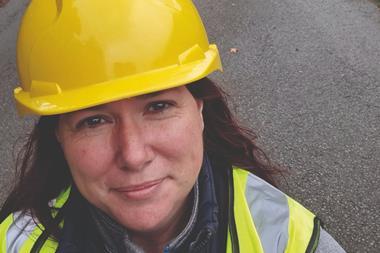We’ve somehow moved seamlessly from sweltering in tropical heat last week to howling gales and an autumnal feel this week. Here’s hoping our new alfresco dining culture can keep going. The imaginative use of Parisian style outdoor heaters and canopies could be the way to go.

As we continue to ponder the reinvention of retail, a recent Business of Fashion case study ‘Tapping into the Future of Physical Retail’ caught my eye. It’s increasingly clear that, despite exceptions such as Primark, retail will need both bricks and mortar stores and online in the post-pandemic world.
So, what is the role of the store now that you don’t need a physical shop in order to transact? Business of Fashion looked at different examples of the use of the retail store as service touchpoint, brand billboard, community hub and as immersive entertainment. A brick and mortar experience still seems to be essential for brand building.
Despite the exponential growth in e-commerce, a shop remains the vital link between customer and product. This is the reason that successful digitally native brands have increasingly come off line to get closer to their customers. Warby Parker, the New York based online retailer of glasses and sunglasses, was founded in 2010. To enhance customer experience they opened their first store in 2013 and by 2018, prior to pre lockdown they had 120 stores and were continuing to expand. As retail guru Doug Stephens commented, ‘The physical store of the future is a non-stop, running advertisement for what makes a brand unique.’
However, the challenging trading conditions are affecting even the retail giants who are looking to reduce their property footprint. Zara’s holding company Inditex announced in June that it will close 1,200 stores worldwide over the next two years. The total store count of their various brands could fall from 7,412 to between 6,700 and 6,900 after the reorganisation. The traditional department stores, long the mainstay of shopping centres and malls, continue to fall by the wayside.
Location does continue to be paramount. ‘A store that’s well located with good visibility… becomes an acquisition tool, an advertising medium,’ said Warby Parker co-founder Neil Blumenthal in the Business of Fashion case study. ‘We have a team that looks at [data] like people in these zip codes tend to travel here, work there and shop here, and that helps pinpoint where we should consider a store,’ It is going to be interesting to see whether the current focus on shopping locally continues and has an effect on the concept of a desirable retail location.

In the same way that we don’t need to go to a retail store in order to buy, the great home working experiment has shown we don’t need to go to an office to work. As for retail, the office of the future will need to fulfil a defined purpose other than just being a workplace. Chris Kane’s new book ‘Where is My Office? Reimagining the Workplace for the 21st Century’, due for UK publication in October is therefore rather timely. Kane draws on his extensive experience as vice president of international corporate real estate for The Walt Disney Company, and head of corporate real estate at the BBC, where he was responsible for the creation of MediaCityUK in Salford and the £1bn development of Broadcasting House.
In the age of remote working and flexible work weeks, it is curious that most office spaces have remained relatively unchanged. After all, IWG/Regus founder Mark Dixon envisaged over 25 years ago the end of commuting and the rise of the local work centre. With the increase in agile working, hot-desking and tech innovation, the traditional office space no longer serves the needs of a modern workforce. I look forward to reading this book which includes interviews with workplace experts such as Mark Dixon and my regular co-panellist Ronen Journo, SVP at WeWork.
In a recent Forbes interview Kane said, ‘I wrote my book expecting it would be a slow burn to get the sector to change, but Covid-19 has changed the ballgame and the stadium.’ He also points to the vital need to also think about the longer term. ‘We’re all focused on dealing with the short-term consequences of Covid-19, but we also have to be mindful about the medium and long-term implications. Pre-pandemic, we were facing a climate change challenge and that hasn’t gone away.
We are guardians of the built environment and custodians of this earth for the generations that follow us, and we need to think about whatever adjustments we make in the light of both short-term and long-term needs. That means getting much more serious about the corporate social responsibility agenda and using our buildings in smarter ways, so we leave a legacy we can be proud of.’ Well said Mr Kane!
Kane has been writing about the future of the workplace for some time. I recently came across a 2014 Occupiers Journal article, which he co-authored with BT’s Caroline Waters, entitled ‘How the workplace dodos can survive and prosper’. It advised ‘for those of us concerned with the physical aspects of the workplace, we need to adjust from a purely building centric focus to a wider one focused on people that enables them to work anywhere and anytime.’ It is extraordinary that it has taken a pandemic for that realisation to dawn.
And will concerns about social distancing lead to a new generation of office cubicles? ROOM, a company, founded in 2018 and which produces an award-winning soundproofed modular phone booth and is launching further workplace solutions have recently raised $12.5m to fund their reimagining of the workplace through the use of modular construction. Their backers include world-renowned architect Bjarke Ingels, founder of Bjarke Ingels Group (BIG).
Finally, it was a treat to emerge from my virtual world to have a real lunch last week with James Andrew International’s Harvey and Andrew Soning and to finally catch up face to face. It felt like an appropriate milestone particularly as my last real estate social event, before lockdown claimed us, was the Property Week Editor’s MIPIM dinner co-hosted by James Andrew and New West End Company.
Due to covid-19 it took place at the Ivy Club in London rather than in Cannes as originally planned and was particularly memorable as we knew this would be the last supper for a long while. At lunch I was given a very welcome going home present.
Ahead of the game as usual, James Andrew have produced an amazing branded smart key tool which enables touch-free door and drawer opening and also works as a lift button press. It is worth its weight in gold!
Susan Freeman is a partner at Mishcon de Reya
Related blogs by Susan Freeman:
- Propertyshe perspectives: our new reality, climate change and the Mipim editor’s dinner
































No comments yet